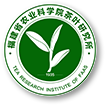Abstract:
Objective For resource conservation, a collection of tea germplasms with desirable agronomic traits was taxonomically organized based on leaf phenotypes.
Method Differentiated leaf phenotypes of 49 selected tea germplasms were examined and analyzed for genetic diversity, principal components, species clustering, and trait correlations.
Result The genetic diversity indexes of 18 leaf phenotypic traits of the 49 germplasms ranged from 0.31 to 2.15 with an average variation coefficient of 29.4%. The principal components were the length, area, length/width ratio, texture, cross section, and upper surface of leaf that cumulatively made up a contribution rate of 69.73%. It agreed with the result of a cluster analysis which divided the germplasms into 4 distinctive categories. Among the traits, leaf length significantly correlated to the width, area, and vein number; leaf size to the length, width, area, and vein number; and leaf tip inversely to the blade and length/width ratio. In general, the bigger the size and the more lanceolate the shape of the leaves, the more numerous the veins on them; and the greater length/width ratio, the more likely the shape with a sharp and tapering point.
Conclusion The selected tea germplasms were genetically diverse. The 6 primary leaf phenotypic traits identified in this study satisfactorily differentiated between the cultivars.




 下载:
下载: